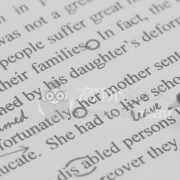新西兰代写assignment:儿童早期教育
新西兰代写assignment:儿童早期教育
从现有和收集到的数据可以看出,幼儿教育的课程是短、长、社会和认知效益的混合体,这就从不同的角度提出了巩固和提升幼儿教育课程价值的必要性。课程的重要性反映在对语言的敏感性,数字技能,社交技能和情绪控制的四岁前的幼儿。所有这些都是儿童早期关键技能、能力和能力发展的关键组成部分(Keengwe & Onchwari, 2009)。结合幼儿与工作人员的活动,在幼儿获得各种新经验和新观念的同时,投射幼儿的认知发展。特别是儿童自己所进行的活动,具有长期的益处,因为这些活动有助于儿童获得各种概念、理论和反应的技能和学习,为儿童的成熟和发展铺平道路。
新西兰代写assignment:儿童早期教育
儿童早期教育的课程,通过加入适当的时代内容,强调需要谆谆教诲的宽容和尊重的文化价值观作为一个符合需求在进入小学的阈值作为一个坚持健康和学习(Siraj 2009)。在考虑新西兰的长处时,它采取了一些措施,以便提高儿童在非常幼小的时候所受教育的质量,作为与其他国家的比较。这些措施包括家长参与课程的设计和实现,通过反思的方式执行的活动的孩子,需要进一步改善员工的沟通和领导技巧的有效实施课程的传授正确的教育。
新西兰代写assignment:儿童早期教育
The available and collected data reveals that the curriculum for the early childhood education is a mix of short, long, social and cognitive benefits, which bring out the need to consolidate and upgrade the value of this curriculum from the perspective of different approaches. The importance of the curriculum is reflected in the inclusion of sensitivity to language, numerical skills, social skills and emotional control for the toddlers before the age group of four. All these are crucial components in the development of key skills, abilities and capabilities at early childhood (Keengwe & Onchwari, 2009). Combination of the activities performed by the child and the staffs, projects the cognitive development of the child as it gains various new experiences and ideas. Specially, the activities that the child himself performs have long term benefits as they help in achievement of the skills and learning of various concepts, theories and responses, paving the way for his maturity and development.
新西兰代写assignment:儿童早期教育
The curriculum of the early childhood education, through the inclusion of the appropriate age content, emphasizes on the need for inculcation of toleration and respect for cultural values as an alignment with the requirements before entering the threshold of primary schooling as an adherence to the wellbeing and learning (Siraj, 2009). Pondering upon the strengths of New Zealand, it has undertaken measures so as to enhance the quality of the education given to the children at a very tender age, as a comparison to the other countries. These measures include the involvement of the parents in the designing and implementation of the curriculum, through the means of reflection on the activities performed by the children and the need for further improvement in the communication and leadership skills of the staffs as an effective implementation of the curriculum through the imparting of the proper education.








